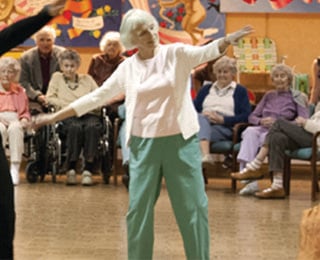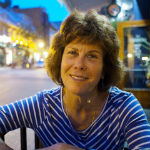Published: September 20, 2016
 When we were young, fast came easy.
When we were young, fast came easy.
We ran fast, maybe drove fast and lived in the fast lane, could fall fast asleep. Our body and mind moved at a fast pace. Fast was our friend.
But now that we are older, slow has become our soul mate, and in more than just the obvious ways.
Dr. Dennis McCullough argues that as we and our loved ones age, we should practice “slow medicine.”
This is how he describes the practice:
“Family, friends, and neighbors team up with an elder and with health-care providers—including visiting nurses and other home-based care providers—to improve the quality of care and avoid inappropriate, sometimes harmful care. Excellent chronic care attends to the day-to-day needs and conditions of the patient—by offering emotional support and social stimulation, supplying better nutrition, and making sleeping, moving, bathing, dressing, and voiding easier.
“Slow medicine is not a plan for getting ready to die. It is a plan for caring, and for living well, in the time that an elder has left.”
A Focus on Quality of Life
Dr. McCullough, who wrote My Mother, Your Mother, Embracing ‘Slow Medicine,’ the Compassionate Approach to Caring for Your Aging Loved Ones in 2008, is credited with coining the phrase “slow medicine.” He refined his approach while working as the medical director at Kendal at Hanover in New Hampshire.
The geriatrician advocates that children get involved in their parents’ health care while they are still healthy. That means conversations about possible chronic needs and living arrangements, preparing living wills and other legal documents.
It also means getting to know their doctors and asking questions that parents may not feel comfortable asking. Is this annual procedure or screening really necessary at an advanced age? Could a lower dose of medication be tried first to avoid possible side effects? When a pacemaker battery needs to be replaced, can I decline to do so? (That was a question my 89-year-old mother raised with her doctor and I challenged his assumption that “of course she would want to replace it.”)
Families need to learn about palliative and hospice care, community resources and specialized services before a crisis occurs.
Of course, not everyone has children, much less willing and available offspring, so the responsibility may fall to a spouse, trusted friend or on one’s own shoulders.
Unfortunately the 72-year-old physician died in June of a heart attack, but his “slow medicine,” continues to gain ground.
Other Slow Approaches
Dr. Victoria Sweet’s “slow medicine” is a bit different, based on 12th century mystic Hildegard von Bingen’s approach to healing. Rather than viewing the body as a machine that the mechanic needs to fix when broken, maybe the body should be considered a plant cared for by a gardener.
“If you wound a plant, it heals itself. If you break a car, it doesn’t. In the same way, there’s a fundamental difference between a doctor as mechanic and a doctor as gardener. If a plant is not doing well, you don’t start doing things to the plant. You ask yourself what it needs, or what’s in the way of its doing well. Is it getting enough sun? Is it getting too much sun? Does it need more water? Is it in the wrong place in the garden? We assume that it has the capacity to thrive. We just need to find out what it needs. That’s a very old, pre-modern way of thinking about the body. But I think it is very relevant today,” explains Sweet in an interview published in the University of California Berkeley newsletter.
She shares the inspiring example of a group of women in England who were depressed. Rather than writing a prescription, the doctor encouraged them to express their feelings through dance therapy.
“They even made a lovely video about it called Finding Your Compass. The dance class gave the women what they needed, and it changed their health and their lives dramatically. That’s slow medicine,” Sweet says.
Dr. Michael Finkelstein has written a book called Slow Medicine: Hope and Healing for Chronic Illness. His approach is based on 77 questions that examine the connections between physical complaints, beliefs, relationships, diet, exercise, emotions, overall outlook on life and other variables that can impact physical, emotional and spiritual well-being.
"Everything is interdependent- muscles and nerves, bodies and minds, people and planet- and each connecting thread has a domino effect on the other,” he writes. "When we slow down and cultivate harmonious relationships with those who are important to us, and otherwise live our lives from the heart – with passion, meaning, and purpose – we bring ourselves into greater alignment on every level: heart, soul, body, and mind." 
 In the past, Molly Kavanaugh frequently wrote about Kendal at Oberlin for the Cleveland Plain Dealer, where she was a reporter for 16 years. Now we are happy to have her writing for the Kendal at Oberlin Community.
In the past, Molly Kavanaugh frequently wrote about Kendal at Oberlin for the Cleveland Plain Dealer, where she was a reporter for 16 years. Now we are happy to have her writing for the Kendal at Oberlin Community.




